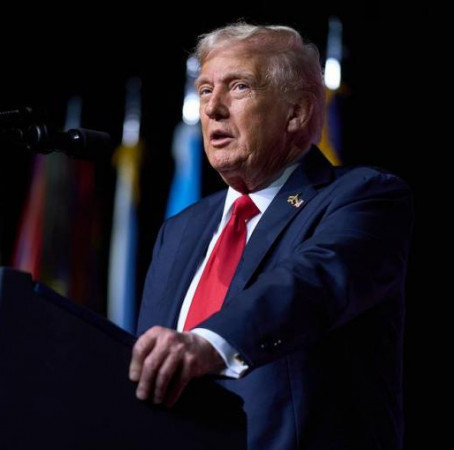Politics
Egypt: military-Islamist perspective?
The celebration of the anniversary of the revolutionary events in Egypt was held a bit despondently and without the promised new wave of revolutionary upsurge
Vitaly Bilan, an expert on the Middle East

Liberal frustration
The celebration of the anniversary of the revolutionary events in Egypt was held a bit despondently and without the promised new wave of revolutionary upsurge. And, indeed, the Qatari sponsors-Islamists after the triumph in the parliamentary elections, have small need to force events, which as is believed in Doha, are anyway moving in the right direction (which, incidentally, is arguable, but more on that later), while overseas sponsors-liberals, in the light of the current election campaign in the USA, count today every penny.
So, at first Mohamed ElBaradei, former director of the IAEA, and then the well-known Egyptian opposition leader, leader of the al-Ghad (“Tomorrow”) Liberal Party, Ayman Nour claimed to withdraw from the race for the position of president. Of course, the charges fell mainly to the Supreme Council of the armed forces of Egypt. Also Egyptian media and the ARE judicial system caught it bad.
However, A.Nur emphasized that he just suspends his presidential campaign so far. The politician, who challenged in 2005 during the first formal alternative elections in the country the then all-powerful Hosni Mubarak, said that the final decision on the continuation of his presidential campaign will be taken at the congress of the al-Ghad party, on February 11, in the first anniversary of the resignation of Hosni Mubarak. However, there seem to be a banal attempt to gain time in the desperate hope that “the West will help us” behind this desire to be effective.
No, of course, various youth movements, mostly left-wing ones do not calm down and further hold their endless demonstrations calling for a speedy transfer of power to the civilian leadership from the ruling Supreme Council of the armed forces to the Speaker of Parliament. There are even skirmishes with youth associations of the Muslim Brotherhood. And it seems that the latter even yield to them, allowing the liberals to “let off steam”, as it was in late January at the parliament building.
However, all this looks more like “don’t hit a man when he's down”. Because you know, everyone understands that Islamism steadily fills the living space of the country. The intrigue is only what kind of Islamism it will be: moderate of the Muslim Brotherhood or radical – of the Salafists.
Islamists’ passions
Much has been recently said about a different (sometimes even radically different) vision of the future of Egypt between the Muslim Brotherhood and the Salafists. For the purposes of today’s topic not so much philosophical debates are of importance, as the probability of various political points of contact. And here even the most improbable alliances are possible, up to an alliance of the al-Nur Salafi Party with the liberals of the Al-Wafd and Egyptian unit of the Egyptian telecom mogul Naguib Sawiris (the coalition talks between the Salafis and Liberals are actively mooted both in regional media and in the blogosphere).
However, it is difficult to imagine so far how people calling for a literal implementation of Sharia laws, a complete ban on alcohol and bikinis even at resorts and other “pernicious” Western trends, and those for whom these same Western values are the “pole-star” can be combined into a single coalition. However, as we know, nothing unites more than the presence of a common enemy.
For their part, the Muslim Brotherhood is watchful. In particular, negotiations are actively under way with the moderate Islamists from the Al-Wasat party, which received a dozen seats in new parliament. A good “publicity stunt” may also be called a protection campaign against attacks on Coptic Christians during this Christmas, when the younger members of the Brothers created in the field the committees for Christian churches protection against the attacks of Salafis.
I believe that the mentioned Naguib Sawiris with his almost four dozen deputative “bayonets” in new parliament of the Egyptian bloc may like such a gesture. It is also important that the Muslim Brotherhood has foreseeingly included two Copts in the voting list of its Party for Freedom and Justice.
Amidst full political uncertainty the famous Islamic university Al-Azhar has tried to make its contribution to efforts of “the Egyptian society consolidation”. Last August a document was published there entitled “The Future of Egypt”, whose main idea was to develop a “right balance” between Islam and the state based on the so-called “general principles of the Sharia” and “general principles of Roman law”.
It catches the eye at once that the document is by no means intended to consolidate all the Egyptian society, but is “adjusted up” to make a compromise between the secular political forces and the Muslim Brotherhood and, which is especially important, to put the Salafis supported by Saudi Arabia on the sidelines.
However, with the right strategy of behavior the Brotherhood can “give the sack” not only to the Salafists, but also to the rest of the Egyptian politicum, acting in collusion with the militaries. Moreover, it seems that beyond the seas especially nothing will be said against that.
The Union of sword and crescent?
We have been recently witnessed how the White House and the Muslim Brotherhood more and more “find each other”. As back as in late February last year, James Clapper, US director of national intelligence suddenly declared that the Brotherhood - is “basically a secular organization that has long ago renounced violence and severed ties with al-Qaeda because the latter distort Islam. In this process of “whitening” of the current winners of parliamentary elections on the part of Washington is far from over.
In this connection we can recall at least a statement by US Department of State spokesperson Victoria Nuland that the Muslim Brotherhood undertook to abide by the peace treaty with Israel and treaties with other countries concluded in the reign of Mubarak and earlier. As well as friendly get-togethers with the Brotherhood leaders of Chairman of the Senate Foreign Relations Committee John Kerry and former US President Jimmy Carter. And, of course, the recent meeting in Cairo of the second-ranking person in the US Department of State William Burns with the leadership of the Muslim Brotherhood is worthy of special attention. By the way, it is significant that a meeting between W.Burns and representatives of the al-Nur Party did not take place.
In general, Washington increasingly begins to understand that investing money in a hopelessly unpopular Egyptian liberals is like throwing money away (in October last year, US Ambassador to Egypt Anne Patterson said that from February to September alone, Americans spent “in support of democracy” in Egypt $40 million). Instead, the White House begins to actively implement the proven “Turkish scheme”: involvement of moderate Islamists in its sphere of influence, with the militaries being held on the financial hook.
Realizing that without overseas financial assistance it would be almost impossible to cope with the terrible socio-economic situation in the country, both the Brotherhood and servicemen resort to transatlantic cooperation. The first on every street corner declare their flexibility and tolerance, and the second have gone to get the next US annual tip for the army needs amounting to 1.3 billion dollars.
In general, the country is beginning to acquire the features of a military-Islamist republic. And global and regional players involved in the Egyptian context seem to begin to put up with it. With the exception of, perhaps, Doha that has spent on driving a wedge between Egyptian Islamists and the army about $100 million, and, from all appearances, prematurely believed in its victory.
The celebration of the anniversary of the revolutionary events in Egypt was held a bit despondently and without the promised new wave of revolutionary upsurge. And, indeed, the Qatari sponsors-Islamists after the triumph in the parliamentary elections, have small need to force events, which as is believed in Doha, are anyway moving in the right direction (which, incidentally, is arguable, but more on that later), while overseas sponsors-liberals, in the light of the current election campaign in the USA, count today every penny.
So, at first Mohamed ElBaradei, former director of the IAEA, and then the well-known Egyptian opposition leader, leader of the al-Ghad (“Tomorrow”) Liberal Party, Ayman Nour claimed to withdraw from the race for the position of president. Of course, the charges fell mainly to the Supreme Council of the armed forces of Egypt. Also Egyptian media and the ARE judicial system caught it bad.
However, A.Nur emphasized that he just suspends his presidential campaign so far. The politician, who challenged in 2005 during the first formal alternative elections in the country the then all-powerful Hosni Mubarak, said that the final decision on the continuation of his presidential campaign will be taken at the congress of the al-Ghad party, on February 11, in the first anniversary of the resignation of Hosni Mubarak. However, there seem to be a banal attempt to gain time in the desperate hope that “the West will help us” behind this desire to be effective.
No, of course, various youth movements, mostly left-wing ones do not calm down and further hold their endless demonstrations calling for a speedy transfer of power to the civilian leadership from the ruling Supreme Council of the armed forces to the Speaker of Parliament. There are even skirmishes with youth associations of the Muslim Brotherhood. And it seems that the latter even yield to them, allowing the liberals to “let off steam”, as it was in late January at the parliament building.
However, all this looks more like “don’t hit a man when he's down”. Because you know, everyone understands that Islamism steadily fills the living space of the country. The intrigue is only what kind of Islamism it will be: moderate of the Muslim Brotherhood or radical – of the Salafists.
Islamists’ passions
Much has been recently said about a different (sometimes even radically different) vision of the future of Egypt between the Muslim Brotherhood and the Salafists. For the purposes of today’s topic not so much philosophical debates are of importance, as the probability of various political points of contact. And here even the most improbable alliances are possible, up to an alliance of the al-Nur Salafi Party with the liberals of the Al-Wafd and Egyptian unit of the Egyptian telecom mogul Naguib Sawiris (the coalition talks between the Salafis and Liberals are actively mooted both in regional media and in the blogosphere).
However, it is difficult to imagine so far how people calling for a literal implementation of Sharia laws, a complete ban on alcohol and bikinis even at resorts and other “pernicious” Western trends, and those for whom these same Western values are the “pole-star” can be combined into a single coalition. However, as we know, nothing unites more than the presence of a common enemy.
For their part, the Muslim Brotherhood is watchful. In particular, negotiations are actively under way with the moderate Islamists from the Al-Wasat party, which received a dozen seats in new parliament. A good “publicity stunt” may also be called a protection campaign against attacks on Coptic Christians during this Christmas, when the younger members of the Brothers created in the field the committees for Christian churches protection against the attacks of Salafis.
I believe that the mentioned Naguib Sawiris with his almost four dozen deputative “bayonets” in new parliament of the Egyptian bloc may like such a gesture. It is also important that the Muslim Brotherhood has foreseeingly included two Copts in the voting list of its Party for Freedom and Justice.
Amidst full political uncertainty the famous Islamic university Al-Azhar has tried to make its contribution to efforts of “the Egyptian society consolidation”. Last August a document was published there entitled “The Future of Egypt”, whose main idea was to develop a “right balance” between Islam and the state based on the so-called “general principles of the Sharia” and “general principles of Roman law”.
It catches the eye at once that the document is by no means intended to consolidate all the Egyptian society, but is “adjusted up” to make a compromise between the secular political forces and the Muslim Brotherhood and, which is especially important, to put the Salafis supported by Saudi Arabia on the sidelines.
However, with the right strategy of behavior the Brotherhood can “give the sack” not only to the Salafists, but also to the rest of the Egyptian politicum, acting in collusion with the militaries. Moreover, it seems that beyond the seas especially nothing will be said against that.
The Union of sword and crescent?
We have been recently witnessed how the White House and the Muslim Brotherhood more and more “find each other”. As back as in late February last year, James Clapper, US director of national intelligence suddenly declared that the Brotherhood - is “basically a secular organization that has long ago renounced violence and severed ties with al-Qaeda because the latter distort Islam. In this process of “whitening” of the current winners of parliamentary elections on the part of Washington is far from over.
In this connection we can recall at least a statement by US Department of State spokesperson Victoria Nuland that the Muslim Brotherhood undertook to abide by the peace treaty with Israel and treaties with other countries concluded in the reign of Mubarak and earlier. As well as friendly get-togethers with the Brotherhood leaders of Chairman of the Senate Foreign Relations Committee John Kerry and former US President Jimmy Carter. And, of course, the recent meeting in Cairo of the second-ranking person in the US Department of State William Burns with the leadership of the Muslim Brotherhood is worthy of special attention. By the way, it is significant that a meeting between W.Burns and representatives of the al-Nur Party did not take place.
In general, Washington increasingly begins to understand that investing money in a hopelessly unpopular Egyptian liberals is like throwing money away (in October last year, US Ambassador to Egypt Anne Patterson said that from February to September alone, Americans spent “in support of democracy” in Egypt $40 million). Instead, the White House begins to actively implement the proven “Turkish scheme”: involvement of moderate Islamists in its sphere of influence, with the militaries being held on the financial hook.
Realizing that without overseas financial assistance it would be almost impossible to cope with the terrible socio-economic situation in the country, both the Brotherhood and servicemen resort to transatlantic cooperation. The first on every street corner declare their flexibility and tolerance, and the second have gone to get the next US annual tip for the army needs amounting to 1.3 billion dollars.
In general, the country is beginning to acquire the features of a military-Islamist republic. And global and regional players involved in the Egyptian context seem to begin to put up with it. With the exception of, perhaps, Doha that has spent on driving a wedge between Egyptian Islamists and the army about $100 million, and, from all appearances, prematurely believed in its victory.


